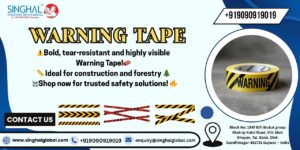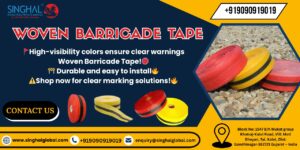Polypropylene is a transparent, shiny material with excellent strength properties and rupture tolerance. It possesses moderate resistance to moisture, fumes, and smells that are unaffected by moisture variations. It expands, but not as much as polyethylene. It is used for purposes related to LDPE. It is frequently used in the wrapping of biscuits, salty snacks, and dried goods.
Maintaining water and food from dangerous pollutants generated by these polymers is an often ignored but critical consideration. Some plastic containers are better for storing water and food, while others are more hazardous to our individual and situational well-being. So, which polymers are appropriate to keep food in?
Polypropylene (PP) plastic is compact and lights while maintaining stability. Since PP is very resistant to heat, absorbing compounds like most other polymers is uncommon. It protects against humidity, grease, and toxins. Polypropylene is the transparent plastic lining in a box of cereal. This preserves your cereal crisp and fresh.
Polypropylene is an ordinary textile that can endure high heat and can be used to create foodstuff cargo space containers.
Polypropylene is most typically used for the items listed:
• Containers for yoghurt
• Tubs of margarine
• Containers for deli meat
• Medication bottles
• Diapers (disposable)
• Pails
• Caps for plastic bottles
• Bags of potato chips
• Rope
• Tape for packing
• Straws
What are the properties of polypropylene that make it suitable for your packaging task?
When selecting a coating for your unique wire basket, you should be aware of the following polypropylene form and properties of the material:
Resistance to chemicals :
In comparison to polyethylene, polypropylene is widely recognized for its superior chemical resistance (regular plastic). Polypropylene is repellent to a broad range of alkaline solutions, chemicals, and organic agents. Yet, reactive acids, chlorinated compounds, and flavours can all damage the substance.
High Strength :
Compared to many other substances, polypropylene has an excellent specific strength of 4,800 psi. Despite its modest density, this permits the importance of enduring reasonably heavyweights.
Tolerance to Impact :
Although polypropylene has high tensile strength, its impact strength is inferior to polyethylene.
Absorption of water :
Water is not able to pass through polypropylene. The sample absorbs only about 0.01 per cent of its water content after a 24-hour soak experiment. As a result, polypropylene is appropriate for fully immersive situations where the hamper material below must be guarded against chemical contact.
Surface abrasion :
Polypropylene has a hardness of 92 on the Rockwell R scale, putting it near the upper end of the gentler tested materials on that spectrum. This indicates that the material is semi-rigid. This increases the chances of it bending and flexing in response to a collision.
Working Temperature :
Polypropylene’s highest suggested working temperature is 180°F (82.2°C). Further than this degree, the material’s results follow may be affected.
Melting Point Temperature :
Polypropylene melts at 327°F (163.8°C). As a result, polypropylene is unsuitable, which leads to improvement.
Cleaning Methods Using Liquids :
An excellent application for polypropylene Sheet is an aquatic components cleaning procedure in which the covered hamper would be immersed in non-oxidizing solutions for long durations.
Polypropylene’s insolubility in such an atmosphere would guard the covered hamper against the liquid cleaning solution. Furthermore, as long as the indoor temperature in the wash does not surpass 180°F, the covering should survive many uses.
Moreover, polypropylene is thick and to be almost impenetrable to water.
Spare Parts Protection :
Another purpose of using polypropylene is to shield sensitive parts from scratches. Just not as flexible as some PVC compositions, polypropylene is nonetheless a semi-soft polymer that absorbs blows, reducing the danger of items being scrapped during the spinning phase of many soluble cleaning techniques. Whereas a polypropylene framework isolates rather than redistributes pressure, a polymer-coated hamper is suitable for analyzing fragile items like glass jars or glass elements.
Conclusion
Singhal Industries Private Limited is an ISO-certified company that can meet your polypropylene sheet needs with reliability and safety.









